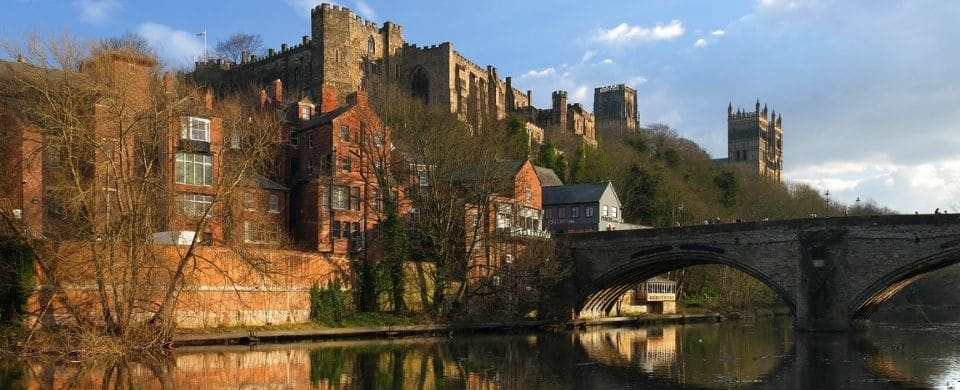The UK’s rivers: In Deep Water
UK rivers are being seriously polluted and this threatens both ecosystems and our livelihoods. The UK Government’s Environmental Audit Committee reported recently that England’s rivers are polluted by a “chemical cocktail” of sewage, microplastics and slurry. The audit report also indicated that every major river in England suffered from some level of pollution and none had a clean bill of health.
One special natural asset which is badly affected is our chalk streams. The UK has nearly 85% of the world’s natural chalk streams – an amazing endowment – yet, according to report findings, only 14% are in good health. Two thirds of the chalk streams are affected by agricultural run-off and over a half by water company discharges from sewage and water treatment works. According to the Journal of Cleaner Production, the wetter and stormier conditions are accelerating run-off from farms leading to siltation of chalk streams and other rivers, and higher nitrate levels.
The deeply unhealthy state of Britain’s rivers has a direct impact on biodiversity. This includes a reduction in fertility of fish, and increased mortality due to loss of oxygen in water with likely impacts too from microplastics ingested by birds and mammals too.
One of the biggest impediments to cleaning up our rivers is ongoing government budget cuts. Key organisations such as the Environment Agency (EA) have seen budgets slashed in the past decade by up to 65% since 2010. This greatly impacts the organisation’s ability to monitor, prosecute and rectify pollution incidents. The ENDS Report (18 September 2020) revealed that not one single river in England was considered “good” in terms of chemical condition during the previous year. Morecuts in 2022 will further undermine the EA’s ability to improve the quality of our rivers. The EA have recently recruited 50 inspectors to assess water quality, but the inspectors themselves have virtually no power to enforce fines for polluting companies and individuals. With such a small workforce it has been suggested that each farm will only be visited once every 50 years.
It is likely to take a surge in public concern for our rivers to persuade this or future governments to turn this situation around. Those of us who care about nature should be in the lead in raising our voices. Now, in the light of recent reports, is a good time to write to your MP asking to press the government to restore funding to organisations such as the EA. And you can do our practical bit to help too, by minding what we pour down the sink.
Written by Andy Lester, A Rocha UK’s Head of Conservation for our March 2022 eNews.
Sign up to receive future eNews communications here.






One way to get involved in fighting for our rivers is by following the activities of your local Catchment Partnership. Rivers are categorised and managed by catchments and the partnership is between the water companies, the EA, local councils, flood risk agencies, wildlife trusts and members of the public like me. I was invited to join by a council officer who is a member of my LCP. I have personal goals which can be fulfilled through the contacts I’ve made in the partnership, and likewise as the person on the ground I can report local issues to those in authority. I am currently learning much about drainage, and reporting regularly about a blocked outfall which has caused a drainage cover to ‘blow’ not once but now twice, because the outfall is still blocked with litter. My reporting and photos over the last year is adding pressure but still nothing is done. Nevertheless, I feel a valued part of a team pushing for action and just by walking around my area can have an influence and hopefully eventually make a difference to the quality of water in our river.
This seems to be disastrous news, as it seems only recnlty we, as a country we were patting ourselves on the back, discovering the rivers and streams to be clean, with fish and other life returning, post war.. Time flies, but care and responsibilty seems to have disppeared. Shame on us. All efforts do not cost money, so we might just take much more care, to ease the burden. One small step to begin with.
Thanks for this, but does the “partnership” you refer to above not include farmers and landowners, who are vital surely to any projects to clean up rivers and limit flooding?
Hi. Written to my MP. Was very sad to read this.
It is not only what we pour down the sink, but what goes into our drains that we need to mind. Quite a few road drains go straight to local watercourses as they have “separate drainage” systems, in contrast to Combined drainage systems where both rainwater and foul drainage go to sewage works for treatment. Our estate is one example. People think that the road drains are a disposal point for liquid waste – they are not. Unfortunately there is no policy of labelling these road drains, which would be very helpful.
(The positive aspect of Separate drainage systems is that it avoids Combined Sewer Overflows, which cause pollution during wet weather)
A campaign group in Oxford, Oxford Rivers Project, are currently engaged in trying to get part of the River Thames declared clean enough for bathing at a very popular site on Port Meadow, a large area of common land in the City. Upstream of this site are several Thames Water sewage treatment works which regularly discharged untreated sewage into the river at times of high rainfall. Although TW claim to have invested millions in upgrading their systems, this has not kept pace with population growth [aka income], and has not prevented shareholders receiving millions in dividends. Given that TW receive a free good from the skies it is shameful that they do not recognise their responsibility to ensure that their business does not cause harm to our natural world.
This is a very sad state of affairs having made big strides in water quality at the end of the 1900’s. Wales has won some funding for improving 4 rivers, including the Wye and the Usk. Hopefully other regions can do the same
Watched an inspiring documentary last year on the Sky Channel Climate Show. This was about how
Farmers in fuel poor countries are generating gas and selling it in tanks. This is all generated from
the ‘run off’ from pig farms. This slurry, as we know, is causing such harm here, to our aquatic life in rivers.
Is this another case of not joining up the thinking where we could create jobs and incomes here.
Do we have to wait until we are desperate to encourage initiatives like this? The chance may come
sooner than later if there is a shortfall in our own supply of gas due to current Russian/Ukranian conflict.
I understand that the County Council in Herefordshire are offering farmers subsidies to build barns over silage clamps – to prevent run-off when there is heavy rain – and hardcore for tracks around fields to prevent nitrates from fertilizers from entering the water courses so quickly. They may be small steps, but hopefully these are being replicated nationally to help improve water quality in rivers.
The river Wye in Herefordshire is almost devoid of the river weed that it once had, which was an important sign of its previous health.
I hope more can be done to help farmers realise how significant their contributions can be – both in terms of understanding how serious the situation has become and in recognising what they may be able to do to improve things for the future.